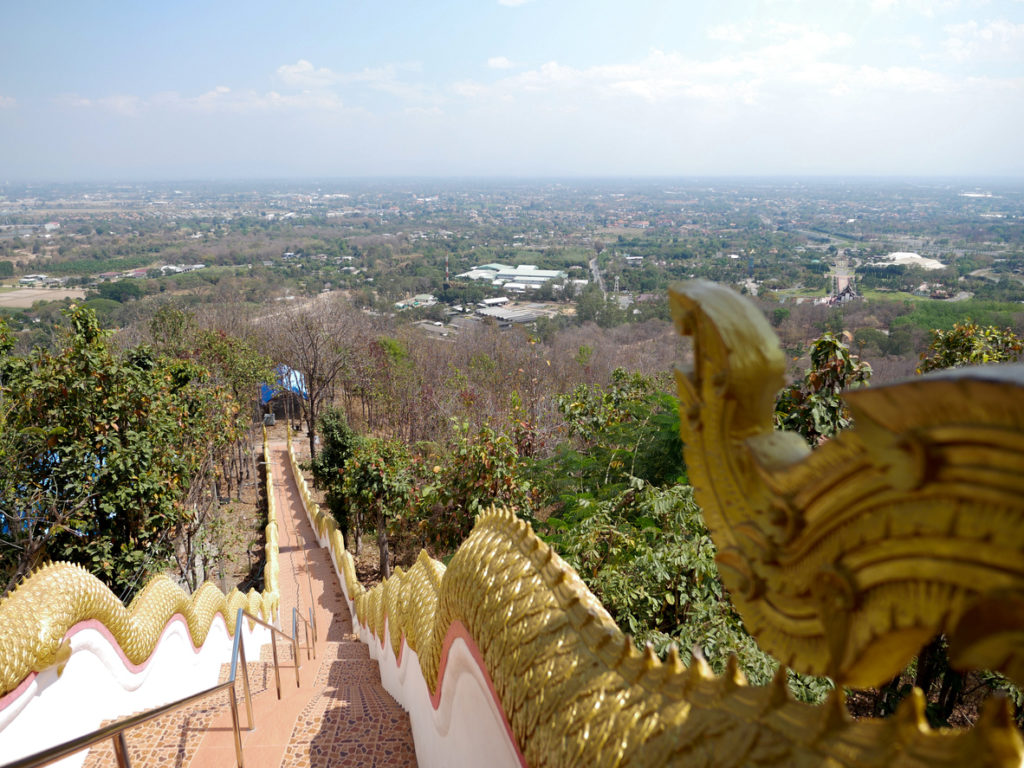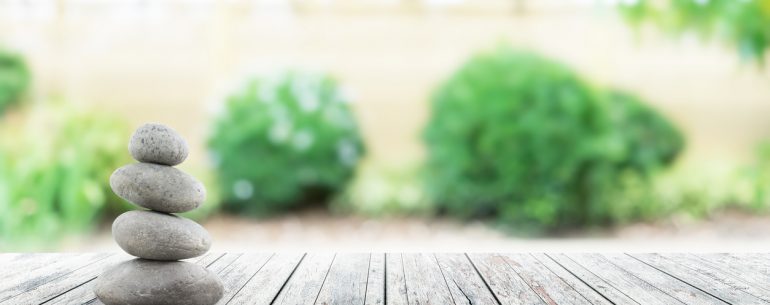After one year of meditating daily, I’ve decided to relinquish all my possessions and enter a quiet life of contemplation.
That’s actually not true. The meditating part is true. I meditated every day for a year, missing only a few days. Now that I’ve finished, I feel more like a guy who took a walk in the woods than someone who’s attained enlightenment.
That John Denver is full of shit.
Taming Mental Chatter
Most of us have an ongoing internal monologue running through our minds all day which doesn’t serve us. It starts from the instant our alarm clock sounds off in the morning. Then at night when our head hits the pillow, the chatter accelerates, not allowing us to fall asleep.
These inner monologues are programmed into us by our environment—something I realized only after immersing myself in different cultures.
Hyperactive minds aren’t unique to modernity. The monkey mind has been handed down to us through millennia. If it seems like little apes are running around throwing feces at each other inside your melon, you’re not alone. What if we could learn to smile at those little bastards and calmly tell them to GTFOH?
Fortunately, there is a way of dealing with a hyperactive mind that has withstood the test of time. It’s a practice started in the East around 1500 BCE called meditation.
Meditative Millionaires and Billionaires
Author Tim Ferriss has said eighty percent (80%) of billionaires he’s interviewed practice some form of meditation—that’s “eighty” with an “E.” These ultra-wealthy folks believe meditation not only benefits them, but those they love and interact with daily.
I had always been skeptical of meditation, thought it was trendy or “new agey.” We all know the gal who goes to yoga three straight weeks, then starts posting esoteric quotes on social media demonstrating her depth and enlightenment. But what I think is phony, many others do not.
In 2016, my then-girlfriend and I visited Chiang Mai, Thailand, a place now known for its meditation & yoga retreats as much as elephant sanctuaries. There’s a popular tourist temple complex atop 306 stairs in Chiang Mai, where a guy dressed like a monk waited halfway up to ask passersby for money. In exchange, he’d give tourists a “blessing” that sounded like, “Goo luck and long lie.” Five words said in broken English earned that guy in a robe roughly $80 USD in fifteen minutes.

We’re no less gullible in the United States. Consider the Senator who, based on his advanced age and career earnings, would be a resounding fool if he wasn’t a millionaire. Not only is he not a millionaire (or a monk who’s relinquished his wealth for the monastic life), he campaigned to lead a financial superpower, by attacking, you guessed it, millionaires. There were even grownups who supported him.
While there may always be a political platform for old men who spew populist nonsense to kids, I wondered if the yogi and meditator were onto something. For one year, I meditated daily to see if there was a freedom and higher consciousness they were experiencing—yogis & meditators, not juveniles who could hardly be mistaken for having an elephant in their brain.
My Year of Meditating Daily
There are many types of meditation. I used Headspace, an app for guided transcendental meditation (TM). It’s free for the first ten days, then $96 annually. Headspace is only $58/year now.
My TM starts by sitting quietly for ten minutes in the morning. I sit cross-legged, hands resting on my knees. I’m relaxed, focusing only on the breath initially.
Then I close my eyes and engage all senses (feelings) by scanning down through my body. Once I’ve established body-awareness, I’m anchored in presence. I listen to sounds around me and become intensely aware.
I observe thoughts without indulging them. Instead, I’m treating thoughts as if they’re passing clouds in the sky or cars passing by on a country road. As a thought enters my mind, I can acknowledge and grasp it, push it out, or both.
After several minutes of meditating, I can label whether experiencing thought or feeling, with its inherent reminder that we control our reasoned choice and all acts that depend on moral will. The feeling in our bodies and its constituent parts are not under our control; nor are our spouses, siblings, possessions, etc. I digress to make a point: If I catch myself lost in rambling thought while meditating, I will direct my attention back to the breath.
“The beginning of freedom is the realization that you are not the possessing entity, the thinker. Knowing this enables you to observe the entity. The moment you start watching the thinking, a higher level of consciousness becomes activated. You then begin to realize that there is a vast realm of intelligence beyond thought, that thought is only a tiny aspect of that intelligence. You also realize that all things that truly matter—beauty, love, creativity, joy, inner peace—arise from beyond the mind.” – Eckert Tolle

10 Things I Derived from One Year of Meditation:
- Less tech addiction – stopped mindless scrolling
- Less impulsive – stopped instinctively reaching for phone in idle moments
- More self-aware – of senses, feelings, thoughts & desires
- More focused – easier to enter flow state
- More gratitude – greater appreciation for time & attention
- Less reactionary – extended gap between stimulus and response
- Greater appreciation for nature – hikes have become my Rube Goldberg machine for thought
- Higher quality thoughts – because I catch myself when lost in low-level thought
- More creative – better able to gain access to that which is outside the mind
- Better writer – write in servitude vs. utilizing egoic mind
Is Meditation for Me?
Being worried, frightened or anxious, once had its usefulness. Our palms still get sweaty so we don’t taste so good to the bear. But since we’re no longer facing death by predatory beast, what good does it do us now to allow the parts of our brain responsible for worry to run continuously?
Sacrificing the present while being lost in the past or worried about the future not only affects us individually, but those we love and work with. A guided meditation can help to bring your attention back to present-state awareness, which suffocates anxiety and fear.
I recommend meditation to anyone who wishes to:
- Develop more self-awareness, be more present, happy and effective
- Attain more peace & contentment
- Better protect their attention, thus guarding their energy
- Gain control over their thoughts
- Diminish ego
TM is for anyone who wants to access a place where you’re not thinking, remembering, or anticipating. Through meditation, you can go to a place where you have no past and the future hardly exists; yet nothing of value is lost; you’re alert, present and under control.
If you’ve never meditated, you might be surprised by how out of control your mind really is. Once you recognize how quickly thoughts pervade your mind, you’ll develop an antipathy towards them. You may wonder why you’re so mentally undisciplined and wish you’d taken more time for yourself sooner.
Differences Between Prayer and Meditation
As someone who has been prayerful for most of my life, I was amazed at the similarities between prayer & transcendental meditation. It became clear to me why those who are raised in modern secular cultures are so profoundly moved by meditation, especially when found later in life.
I found no conflict between prayer and meditation; the latter contains no belief or ideology. In prayer, you are speaking to God; in meditation, the spirit speaks to you, except it speaks in total silence.
Mind and emotional control achieved through prayer and/or meditation takes consistent work and discipline (like anything worth having), which is why mindfulness and/or prayer are recommended daily.
Whether praying for wisdom or learning to protect one’s attention, thus guarding your life’s energy, you are benefiting yourself and others.
The present moment is all we have; therefore, we should immerse ourselves fully.
I wish you goo luck and long lie.
Further reading:
- The Power of Now by Eckert Tolle
- Meditations by Marcus Aurelius
- The Daily Stoic by Ryan Holiday and Ryan Hanselman
- Total Freedom by Jiddu Krishnamurti
- Ego is the Enemy by Ryan Holiday




Enjoyed this post very much Dante. I have been trying something called Heart Math, controlled deep breathing and exhaling. My goal is to gain control over heart beats, hypertension, including worrying about it. Any other thoughts? My best to you!
Thank you, Jan. I’m not familiar with Heart Math. I think the act of sitting in silence and breathing every day has powerful benefits. At a minimum, the discipline of doing the exercise consistently is a win. My other thought is that when we begin an exercise like meditation or the one you mentioned, we tend to be goal-focused (I’m very guilty). Sometimes goals put us in a constant state of pre-success failure. We get frustrated if we’re not achieving stated goal within X amount of time. With a mindfulness or breathing exercise, it’s better to not focus too much on the goal, rather, allow the benefits of the exercise to be a by-product of consistently doing the act (sitting & breathing).
Back 35-40 years ag0, I bought all the books I could find on TM and over the years have practiced TM, the way I’ve come to enjoy. It does work, Just can’t cross the old legs anymore-LOL.
Excellent article.
Wow! Thank you, that is awesome and hilarious!!